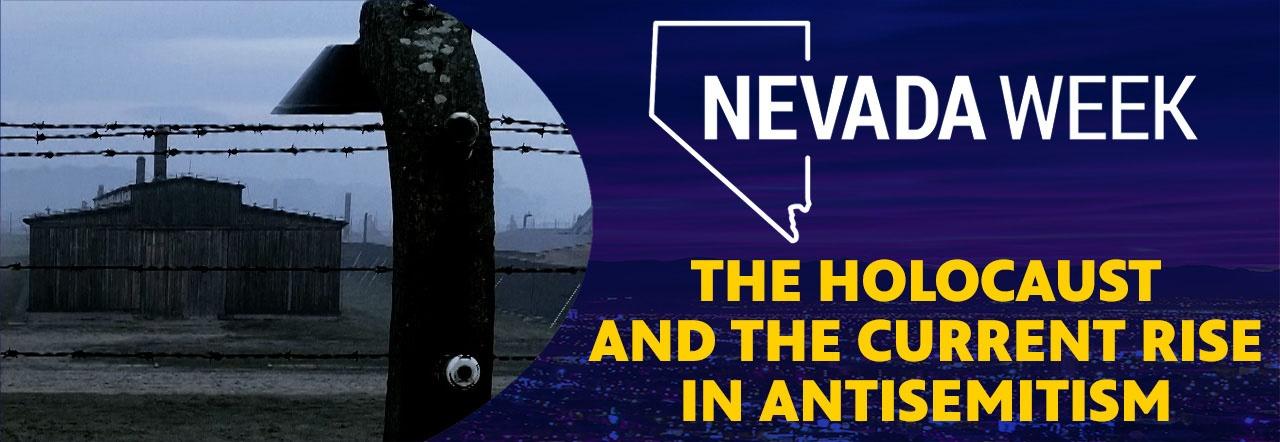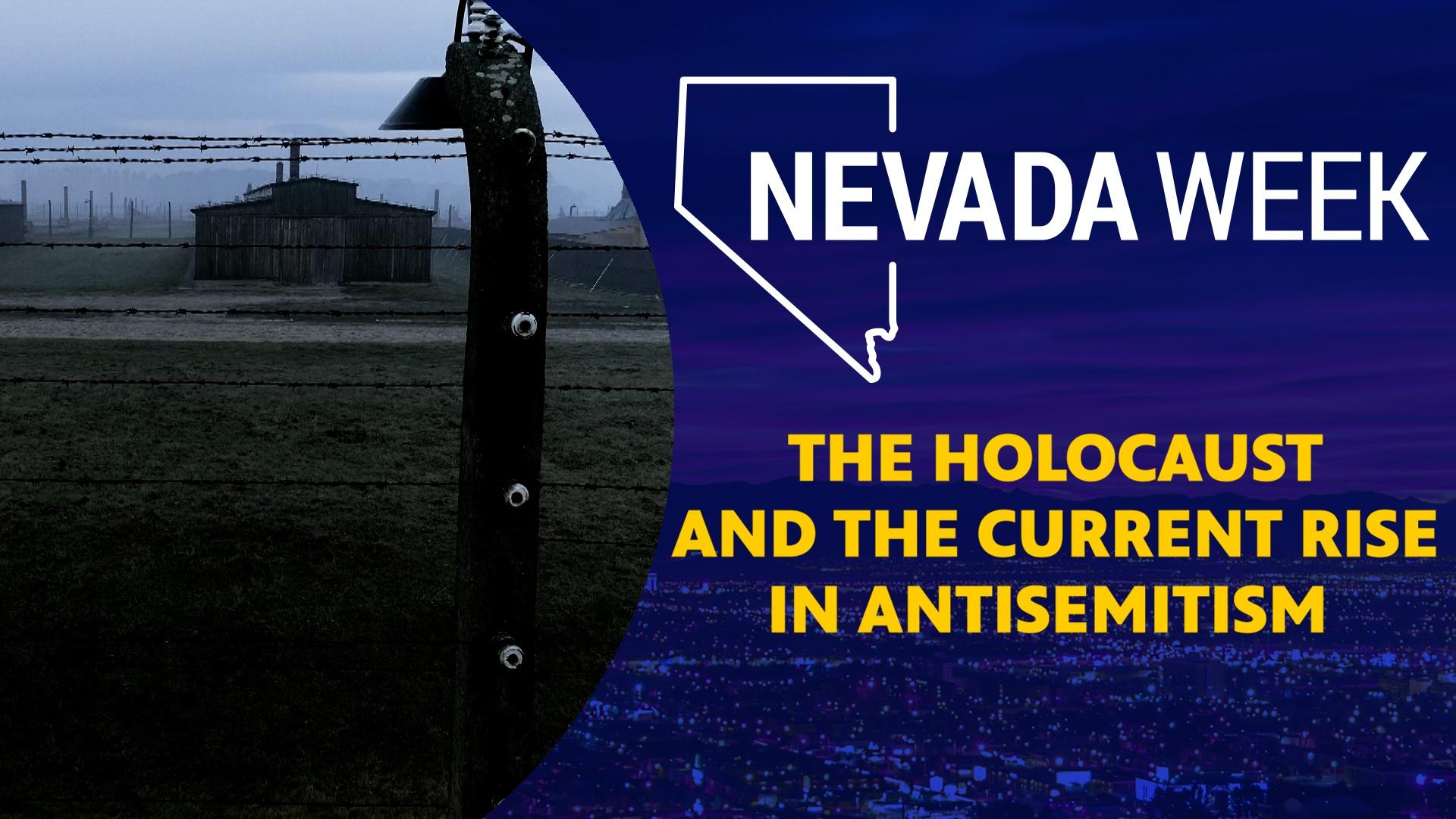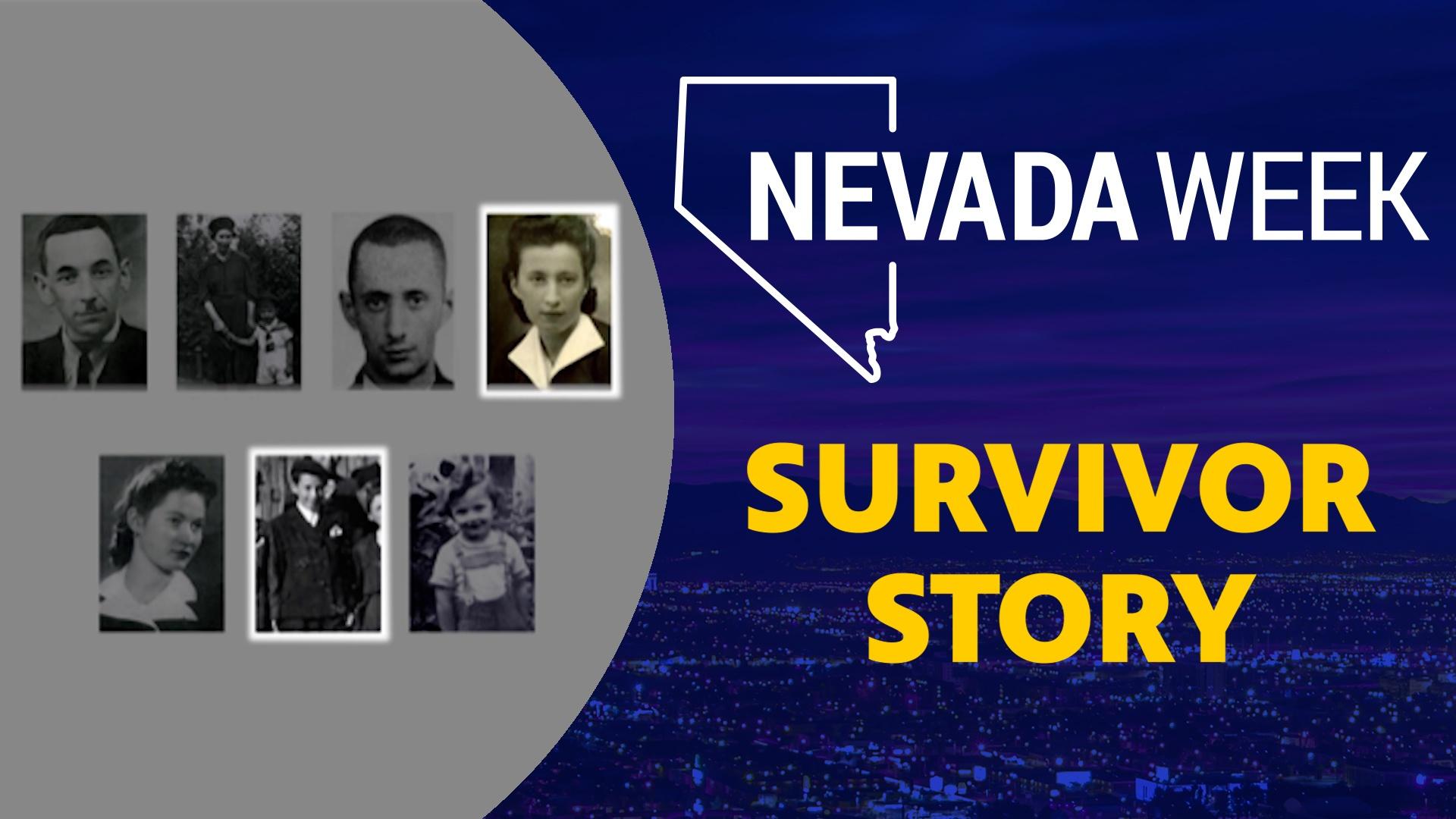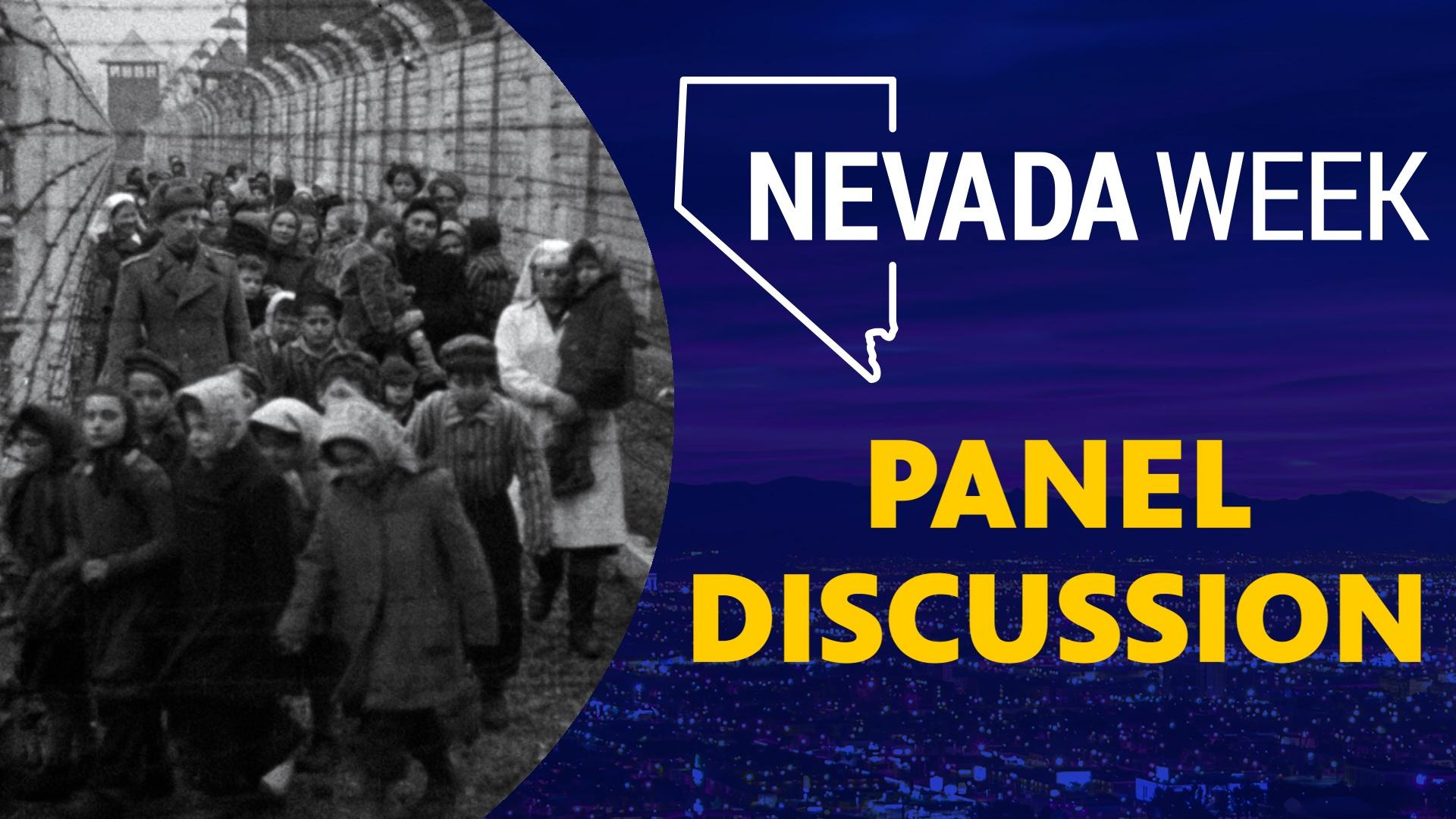The Holocaust and the Current Rise in Antisemitism | Nevada Week


Members of Southern Nevada’s Jewish community comment on the latest rise in antisemitism.



SEASON 5: EPISODE 10 | Airdate: 9/16/2022
The U.S. and the Holocaust, a new documentary by Ken Burns, Lynn Novick and Sarah Botstein premiered on Vegas PBS on September 18.
It focused on the U.S., as a “nation of immigrants” not living up to that title in the years leading up to and during the Holocaust.
A quote from the film outlines its premise, “The United States admitted some 225,000 refugees from Nazi terror, more than any other sovereign nation took in… but during the years when escape was still possible, the American people and their government proved unwilling to welcome more than a fraction of the hundreds of thousands of desperate people seeking refuge.”
Susan Dubin is the library director and education specialist at the Sperling Kronberg Mack Holocaust Resource Center. She said while 225,000 sounds like a large number it does not come close to the number of people who needed to leave Nazi Germany.
She also noted that the U.S. had a quota system in place at the time and the quotas were not filled, even though people applied to immigrate to the U.S.
Rabbi Sanford Akselrad is the spiritual leader of Congregation Ner Tamid. He said to understand why the U.S. didn’t let in more refugees from Europe it is important to understand that America was isolationist and wasn’t part of the war. Plus, there were prominent people in the country that were somewhat sympathetic to the Nazis. There was also an underlying fear of “the other.” Rabbi Akselrad said more than a million people wanted to come to the U.S. at the time but only 225,000 were let in.
Esther Finder is the president and founder of Generations of the Shoah-Nevada. She has interviewed dozens of Holocaust survivors over the years. She heard the story of one family that went to the U.S. consulate in Hamburg and demanded visas. Finally, after being denied, the father of the family brought the entire family into the consulate and said that if they didn’t get a visa they were going out the window because what awaited them in Germany was far worse than jumping out the window. They were granted a visa to come to the United States just two days before Kristallnacht.
Kristallnacht, or Night of Broken Glass, was the November pogrom where Nazis destroyed synagogues around Germany and damaged or destroyed thousands of businesses owned by Jews. They also arrested thousands of Jewish men and boys, putting them on concentration camps.
Dubin teaches Clark County School District teachers about the Holocaust, including what led up to it and America’s involvement. She also discusses the politics of the time and the general feeling of the country.
“They’re always shocked when we talk about what happened,” she said.
Rabbi Akelsrad said that while America played a vital role in ending Nazi rule and World War II he believes it is important to have the courage to look at what didn’t happen and not whitewash America’s lack of involvement.
“America did all these wonderful things, we did, but at the same time there were things that were not right,” he explained, “We were relucent to get into the war in the first place. There were forces within our country that were very strident in terms of xenophobia, racism and prejudice and sometimes the echo of the past is heard more loudly in the present when we’re educated as to what happened and the circumstances by which the occurred”
The rabbi said that it is easy to say ‘never forget’ but that will become just a platitude if people aren’t educated and recognize the signs of how a society can change so rapidly as it did in Germany.
Results from an Anti-Defamation League audit in 2021 show a rise in antisemitism. There were a record high number of incidents of assault, harassment and vandalism reported in 2021. The ADL says on average there are more than seven incidents reported per day. It is also seeing a 34 percent increase in incidents year over year.
Jolie Brislin is the regional director for the Anti-Defamation League in Nevada. She said the key part of that audit is “reported.” She believes the problem is actually worse because some people simply don’t report harassment or vandalism. She said in Nevada there has been a 64 percent increase in antisemitic incidents.
Brislin believes there are a lot of factors behind the rise, but she said antisemitism is not a Jewish problem but an American problem. As antisemitism rises, there is also a rise in racism, Islamaphobia, and anti-immigration rhetoric.
“That lid of the sewer of hate can’t be put back on once it's been lifted and so it’s continuing to spew out,” she said, “It is our job as a community, as a society to push together to get that lid back on. So we have this under control a little bit more.”
Rabbi Akselrad believes social media plays a role in the rise of hate and racism. He said it is easier for people to find websites that reinforce prejudices they might already have and normalize them.
He said people can read lies about the Jewish community internalize those lies and start to believe them. Akselrad notes that social media and the internet are not the only culprit but it is something that is fueling antisemitism that is different from the past.
Dubin said the teachers she works with are reporting more incidents at schools. She said it is often not reported or horrific but it can be something as little as calling another student a name. She said people feel entitled nowadays to express hate-filled thoughts out loud, while in the past, they didn’t express those feelings but maybe kept them to themselves.
Dubin also pointed out that genocide doesn’t start with concentration camps and ghettos but instead starts with name-calling and jokes. If those aren’t stopped at the bottom, they can escalate.
Brislin said that when the ADL does hear reports from schools about antisemitic incidents they work with the administration, teachers, and education groups, like Dubin’s, to come into a school and have education around the Holocaust and antisemitism. She said some students don’t know what antisemitism is and that is real.
In Finder’s view, another problem is the cheapening of the Holocaust by analogies to other, far less severe, incidents. She said a lot of people are making false equivalencies like calling the FBI the Gestapo, which was Germany’s secret police. She said it is nonsense to compare the two. She also pointed out that people who compared COVID restrictions to the Holocaust diminish the suffering of millions of people. She also said those kinds of comparisons hurt survivors.
Rabbi Akselrad also said that using those kinds of analogies erodes the reality of the Holocaust and its historical importance.
Finder believes more people need to hear from survivors of the Holocaust about what really happened to them. She said they also need to hear what survivors say about what it means to be Americans. They appreciate America in a way that people who were born and raised here don’t understand, she said.
Nevada Week spoke to one of those survivors. Ben Lesser was born in Krakow, Poland. The Nazis came to power when he was 10 years old. He survived several ghettos and concentration camps. He was liberated when he was 16 years old in 1945.
Of his family of seven, only he and his sister, Lola, survived. His family escaped to Hungary in a hidden compartment under a truck carrying coal. He treasures a picture his sister painted from memory of their escape.
After two years, he made his way to the United States where, with hard work, he became a successful realtor. In 1995, he moved to Las Vegas. Ever since he has dedicated himself to sharing his experience.
Lesser said he was not surprised by the antisemitism in the United States. He said it exists throughout the world, except in Israel.
“But this is still the best country in the world,” Lesser said, “With the problems, it might have. There's no other country that ANYONE could succeed in life.”
The documentary “The U.S. and the Holocaust” highlights the painful fact that Hilter based some of the laws restricting Jews around Jim Crow laws used in the U.S.
“Well I'll tell you, those were terrible laws, but when I came here in 1947, we didn't experience anything like that,” Lesser said, “It was a free country, and this was a dream to us. After the Holocaust, it was a dream.”
It’s a dream the 93-year-old continues cherishing while working as both an author and speaker to share the horrific reality he once endured in order to prevent the world from what he calls “contracting amnesia.”
